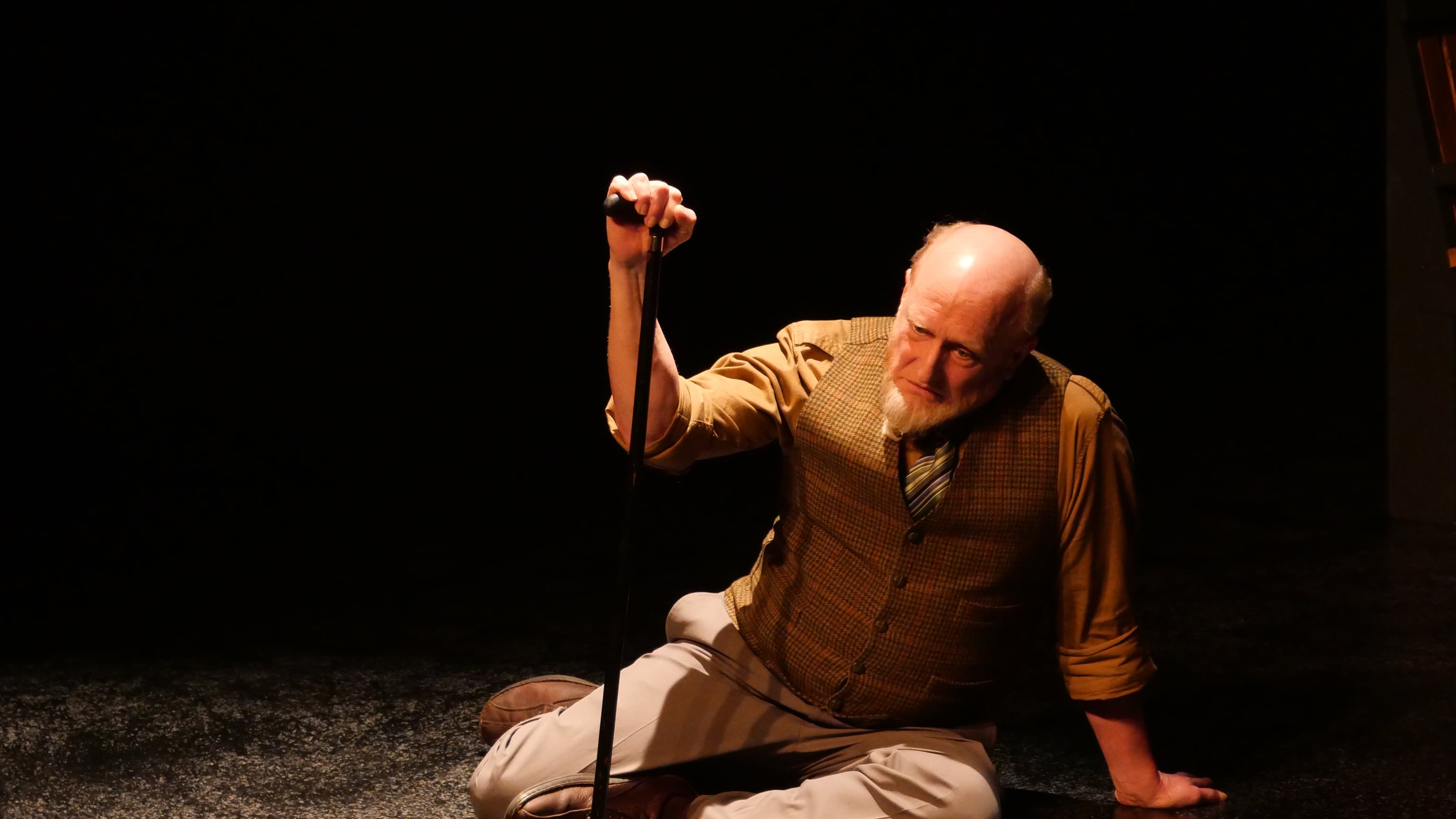Conor McPherson’s 2001 play Port Authority, directed by Jerry Mouawad at Imago Theatre, continues the tradition of Irish storytelling, minus the banshees, fairies or leprechauns of legend.
At first glance, the production, with its barren black set, is a bleak vision. On two facing benches, three men dressed in muted tones and surrounded by misty light sit slumped or staring into the abyss before taking turns performing monologues they address to the audience. Between each narration, the stage goes dark, and we hear the ominous, echoing sound of a train’s bell, suggesting a subterranean station or each man’s personal hell. Trains arrive and depart, but these characters only come alive when they stand and tell their stories of loss.
This is where the play’s magic happens: The rhythmic, poetic script and vibrant performances, along with Jon Farley’s evocative lighting design and Myrrh Larsen’s exclamation points of sound, all work in concert to make us—against the odds—care about these dismal characters.
The youngest of the men, Kevin (Mikhail Duggan), starts by recounting how he left his parents’ home to share a grungy house with friends, including Clare, the woman he longs for. Next, Dermot (Matthew Sunderland), a married father in his 30s, speaks with both shame and bitterness of his spectacular career failure.
Last, we hear Joe (a mesmerizing Tory Mitchell, who sports a whimsical beard that swirls at the tip like an upside-down Kupie Cone) relate, with both wonder and heart-shattering regret, a dream that irrecoverably unsettled his marital happiness. McPherson wrote each story in the past tense, but in Mouawad’s vivid production, each one feels as if it’s unfolding in real time.
As the first to speak, Duggan has the unenviable task of acclimating us to the Irish accent all three actors assume. What’s more, his character speaks with a profane intensity and speed that initially makes his story hard to follow, as, with glittering eyes and bared teeth, he feverishly introduces us to his housemates Davy and Speedy.
Duggan’s supercharged delivery, though, quickly brings out the humor and youthful electricity of his character. “Everyone I knew was in half-assed bands,” he declares, then leaps on a bench and bellows the title of the Sex Pistols’ “Anarchy in the U.K.”—only to later grow quiet as he tells us in poetic detail about the silver bracelet wrapped around Clare’s wrist.
Such specific images allow the audience to clearly picture people who are never onstage. A desperate, angry Dermot, who once worked as a car salesman for 18 months without ever selling a single car, describes a woman who wore a tissue-paper pink dress to a company dinner, then recalls her sad expression when he humiliated himself by drunkenly staring across the table at her chest. While all the men refer to larger themes of judgment and acceptance, it’s the little details about the dress—or the contents of a family meal of ham, boiled eggs and brown bread—that connect us to the characters as humans.
The strict rotation of monologues—five sets of Kevin, Dermot, Joe, in that order—becomes a tad monotonous by the latter half of the play. Could McPherson could have kept us even more enthralled if he’d mixed up the order here and there? Maybe, but each tale is enlivened by symphonic variations of mood and vocal tone. A twinkling Joe laughs and jigs as he reminisces about slipping out of his senior living home for a lively bash at a bar with friends, but his voice also rises to an anguished shout when he says he feared God would punish him for his secret love. With the spotlight now pinned on him, his suffering is palpable.
Telling your stories, the play seems to say, won’t help people transcend their pain. But when compelling characters speak to us directly from the darkness, our compassion for them becomes a part of their story, which is, in its own way, a type of magic.
SEE IT: Port Authority plays at Imago Theatre, 17 SE 8th Ave., 503-231-9581, imagotheatre.com. 7:30 pm Friday–Saturday and 2 pm Sunday, through March 24. $23. 16+ recommended.
